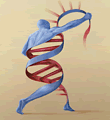JCCS at WILEY
Home After 17 years publishing with Springer The Journal of Cell Communication and Signaling (JCCS) is […]

WHO ARE WE?
Welcome The International CCN Society (ICCNS) was created in 2001 after the First International Workshop on […]